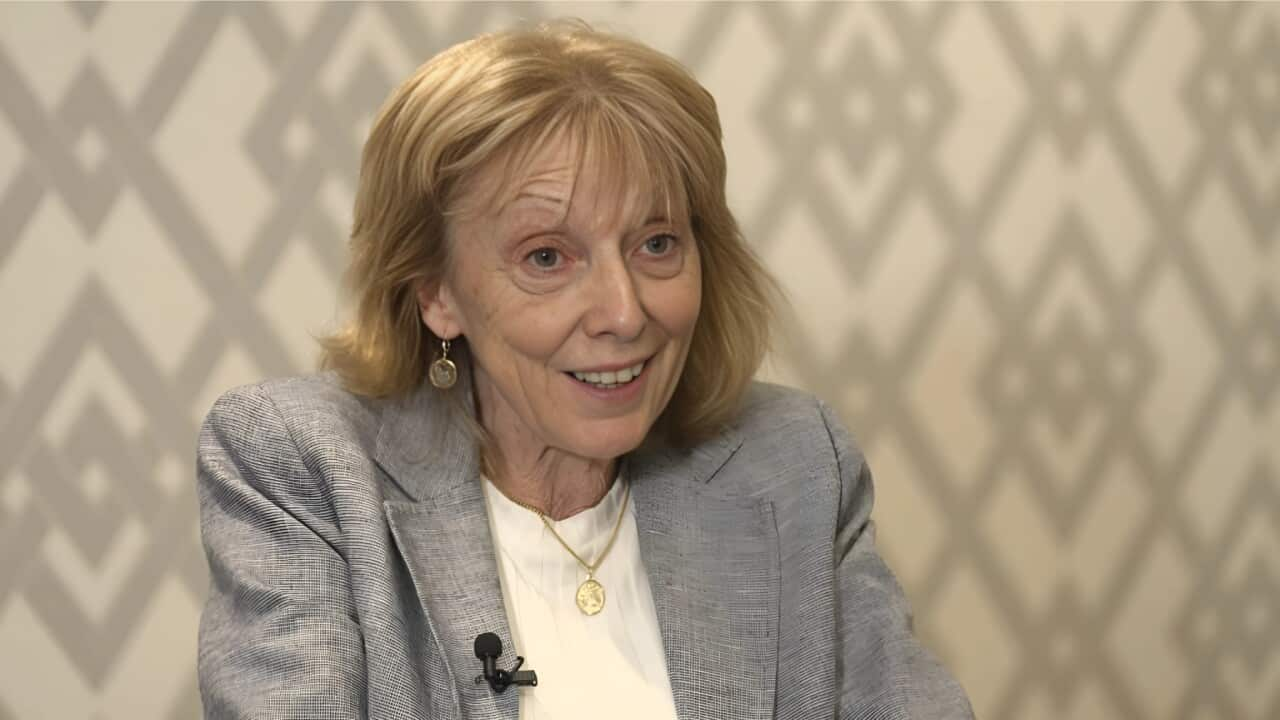TRANSCRIPT
Finally, relief for Hanan Alzuhairi.
In the last few years, the support worker's mortgage repayments have increased a thousand dollars a month.
IN LANGUAGE (Arabic) TRANSLATED: "If I don't pay, I will lose my house and this has forced me to cut back on payments and shopping and this has created a lot of stress for me and my family."
With three daughters and her husband on the Age Pension, their family has had to make large sacrifices.
IN LANGUAGE (Arabic) TRANSLATED: "Instead of buying four pieces of school clothing, I now buy two pieces of uniform. Also, sports activities. In the past, they used to do gymnastics, swimming and football. But now I can't provide that for them. Also, I have to bear toothache because I can't go to the dentist because it's expensive."
After 13 increases, the cash rate has been on hold at 4.35 per cent for more than a year, now to be cut by 25 basis points, to 4.1 per cent.
If cuts continue, Ms Alzuhairi hopes they may be able to afford their first holiday in eight years.
Canstar modelling shows that for a borrower with 25 years left on a 600-thousand-dollar variable loan at 6-point-33 percent, today's cut will save them 92 dollars.
Four cuts would keep 359 dollars in their pockets at the end of the month.
But Reserve Bank Governor Michelle Bullock says she cannot declare victory over inflation just yet.
"Today's decision does not imply that further rate cuts along the line, suggested by the market, are coming. As I noted, we removed the cautionary increase that we did in November '23 to a level that we still see as restrictive. But the board needs more data and evidence that inflation is continuing to decline before making decisions about the future path of interest rates."
Similar sentiment from across the political spectrum – with federal Treasurer Jim Chalmers....
"Today's decision is very welcome. But it's not mission accomplished because we know that people are still under pressure."
...and his opposition counterpart Angus Taylor – both warning of an uncertain future.
"The Reserve Bank is expecting that living standards will be worse than in their previous forecasts and this is more pain for Australian families, the journey is far from over here."
About one third of Australians are paying off a mortgage – most over 25 or 30 years – and most are on a variable rate, meaning a cut leaves more money in their pocket at the end of the month.
Close to another third own their home, meaning they’re more likely to have more superannuation and money in the bank – so, they’ve benefited from the higher interest rates.
And the remaining third are renters, many living in homes with mortgages, so higher interest rates have, in some cases, been passed on through higher rents.
VOX POP: "Renting increased 20 per cent in the last year, so I think it will maintain the same."
VOX POP: "I'm a renter. I moved to Sydney yesterday. It's so hard to find a rental place and it's super expensive."
But, there is some hope.
Here's Sean Langford from Oxford Economics.
"It should be a positive year for real wage growth. The things that we look at there are generating faster wage growth or relatively fast wage growth in the labour market. That's going to remain the case while the unemployment rate is around its current level. But equally, you need to consider the bite that inflation is taking out of your pay packet."
And more from Lead Partner for Deloitte Access Economics Pradeep Philip.
"We think this is the start of a new cycle of interest rates coming down because we see the importance of shifting this debate to economic growth through investment. This is what we need to be focused on. The reality is that in Australia, with weak economic growth and inflation coming down, this is the right time for a rate cut. What we should see from that is a boost to investment and business confidence."
Today's decision is considered key to the upcoming federal election, with the ability to soothe pain in the mortgage belt now tied to the government's political fortunes, although Prime Minister Anthony Albanese claims the date of the election- due by May the 17th at the latest- isn't tied to rate cuts.
But with inflation still above the R-B-A's target – standing at 3-point-two percent – the decision was a line ball call.
Further relief at the next meeting in early April is far from assured.













